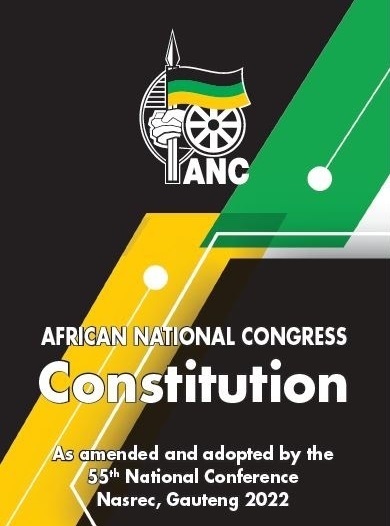In recent years the demon of racism has reared its ugly head threatening our nation’s progress towards the realization of truly non-sexist society. The Vicky Momberg case laid bare the depths of the wounds of yesteryear that refuse to heal. The decision by the courts to sentence Momberg to a prison sentence not only affirms the nation’s resolve to obliterate racism in all its manifestations, but an affirmation that racism is the original crime that has no place in a democratic South Africa.
As the prospect of spending time in jail for Vicky Momberg for racism loomed large, so did the winds of change that finally heralded the dawn of an era where racism is finally recognised as the ‘original crime’. This was a blind spot none saw coming, yet Magistrate Pravina Rugoonandan made this as real as rain. Others chose to see this as retribution rather than justice that seeks to underpin the value system of the democratic South Africa. The Freedom Charter proclaims that “The preaching and practice of national, race or colour discrimination or contempt shall be a punishable crime.” Indeed, our Constitution outlaws such conduct and various legal instruments are at the disposal of our criminal justice system to punish such conduct. The sentence handed down on the Vicki Momberg case demonstrates this in no uncertain terms. In order to strengthen the hand of our courts in curtailing the demon of racism and other similar hate crimes, Parliament is currently considering the “Prevention and Combating of Hate Crimes and Hate Speech Bill” which will give courts power to impose stiffer penalties and sentences.
In the recent past we have seen the bravado of those who subscribe to the philosophy of racial segregation of yesteryear. Penny Sparrow made headlines in 2016, closely followed by a similar incident at Pretoria Girls High School, then the Sodwana Bay guesthouse that turned black people away. In no time two farmers assaulted and forced into a coffin a farm worker, closely followed by a black athlete attacked by white students to racist ramblings by a grade 11 learner at a prestigious KwaZulu-Natal school. We must not delude ourselves into thinking racial intolerance is limited to black and white, it is a cancer that permeates through all South Africa’s racial groupings. These are but a tip of the iceberg and expose the depth of the problem of racism in South Africa. Racism may no longer be institutionalised, but its presence in communities, workplaces and social settings cannot be denied.
Have we become blasé in our quest for a South Africa that is truly non-racial and at peace with itself? It does appear, by and large, that society has accepted at face value that as South Africans, we all embrace a common destiny, where all citizens co-exist as equals in a society that shuns any form of discrimination. Perhaps we were naïve, perhaps we were too hasty in believing that we had the capacity to dismantle the very foundation of apartheid in a mere two decades of our democracy. However, the fundamental question is whether we have the staying power to advance the strategic objectives of the national democratic revolution of the creation of a non-racial, non-sexist, democratic society that is truly emancipated and at peace with itself. I have no doubt of the ANC’s resolve to stay the course through relentless opposition.
In contextualizing the ANC’s vision, Cde Pallo Jordan, in a discussion paper prepared in 1997 for the ANC’s 50th National Congress, ‘The National Question in Post 1994 South Africa,’ succinctly captures the trajectory of the nation in this regard when he says, “Racism is no longer institutionalized; all South Africans now have the franchise; racial restrictions on property rights and on access to the professions, trades, forms of work have been abolished; the instruments of labour coercion have been done away with; and a democratic constitution has put an end to legal repression.
Yet no one can pretend that South Africans share a common patriotism and a common vision of the future of their society. Ours is still a highly racialized society and, since the 1970s, racism has been amplified with a sharpening of ethnic attitudes.”
The racial incidents that continue to dog us daily are an indication of how hard and tortuous the road we have yet to traverse in realising a non-racial society. Ours was never a struggle about replacing the oppression of one race group by another. Our commitment to the ANC’s grounding policy document, the Freedom Charter, has never been greater. The ANC’s character as a non-racial movement has never wavered since its founding in 1912. Others have not resisted the temptation to peddle lies and suggest the ANC has abandoned its non-racial character, as encoded in the Freedom Charter, which proclaims that “South Africa belongs to all who live in it, black and white.”
The arguments advanced by Cde Pallo Jordan in his 1997 paper in dealing with the scourge of racism forces us to confront the contradictions of our struggle and the need to find a sustainable path in our nation-building project that grounds race issues within the broader ambit of the national question. Once all is said and done, we must answer the question: How do we build a nation-state where its citizens are South African first, before they are Black, White, Coloured or Indian. The divergent paths we have traversed to reach the democratic South Africa have a profound influence on the lens through which we view and perceive others around us. Whether such paths relate to privilege, poverty, subjugation, they represent the wealth of experience, good and bad, that must be blended in the melting pot in order to craft a path that leads us all to the same destination.
There can be no doubt that the ANC remains the ANC of yesteryear whose resilience and character was moulded by a value system that was epitomised by the giants of our revolution. These include include Pixley ka Iseme, Sol Plaatjie, Langalibalele Dube, Oliver Tambo, Walter Sisulu, Nelson Mandela and many others who left an indelible mark on the character and values the ANC continues to espouse to this day. Ours is to advance the historic mission of the ANC by ensuring that its evolution in the face of the ever-changing political landscape keeps it grounded to its values and remains a political home to the vast majority of our people across the racial and cultural divide.
Cde Fikile Mbalula is the Head of Elections for the African National Congress





